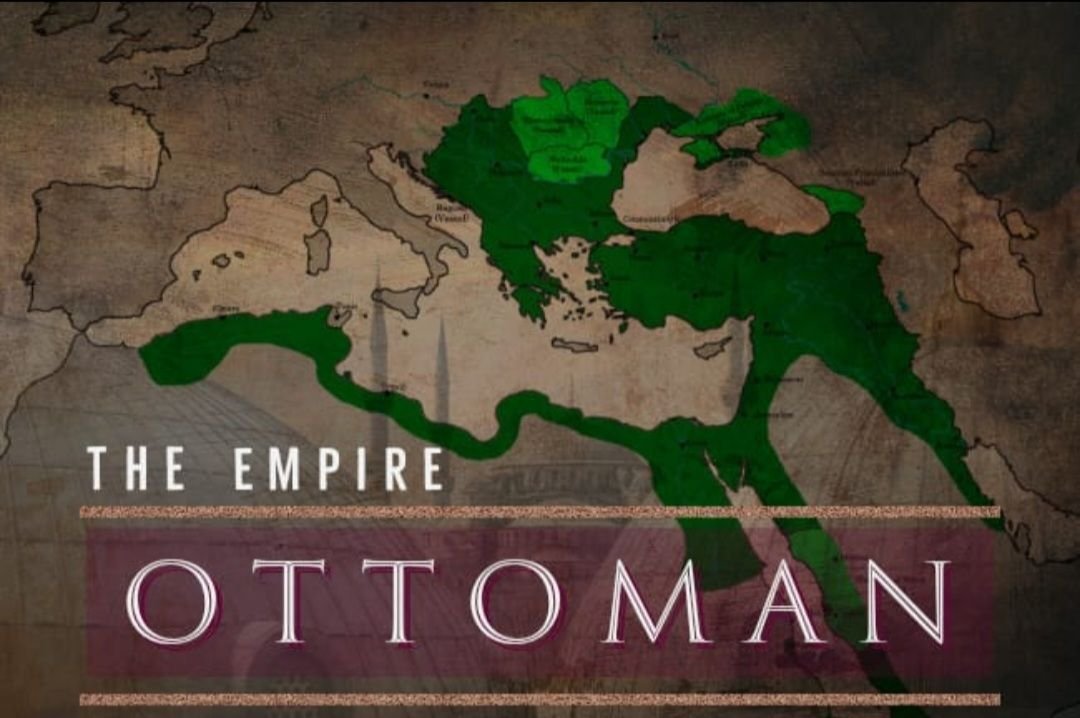In The Name of Allah, The Most Merciful, The Bestower of Mercy.
Allah, The Exalted, said:
ٱلَّذِينَ ءَامَنُوا۟ وَتَطْمَئِنُّ قُلُوبُهُم بِذِكْرِ ٱللَّهِ أَلَا بِذِكْرِ ٱللَّهِ تَطْمَئِنُّ ٱلْقُلُوبُ
Those who believe (in the Oneness of Allah – Islamic Monotheism), and whose hearts find rest in the remembrance of Allah, Verily, in the remembrance of Allah do hearts find rest. [Al-Rad 28]
Allah said:
ٱللَّهُ نَزَّلَ أَحْسَنَ ٱلْحَدِيثِ كِتَٰبًا مُّتَشَٰبِهًا مَّثَانِىَ تَقْشَعِرُّ مِنْهُ جُلُودُ ٱلَّذِينَ يَخْشَوْنَ رَبَّهُمْ ثُمَّ تَلِينُ جُلُودُهُمْ وَقُلُوبُهُمْ إِلَىٰ ذِكْرِ ٱللَّهِ ذَٰلِكَ هُدَى ٱللَّهِ يَهْدِى بِهِۦ مَن يَشَآءُ وَمَن يُضْلِلِ ٱللَّهُ فَمَا لَهُۥ مِنْ هَادٍ
Allah has sent down the best statement, a Book (this Quran), its parts resembling each other in goodness and truth, oft-repeated. The skins of those who fear their Lord shiver from it (when they recite it or hear it). Then their skin and their heart soften to the remembrance of Allah. That is the guidance of Allah. He Guides therewith whom He pleases and whomever Allah sends astray, for him there is no guide. [Al-Zumar 23]
Imam Ibn Al-Qayyim, may Allah have mercy upon him, said:
The religion is based on two matters: remembrance of Allah, which necessitates having knowledge and awareness of Allah, and being grateful to Him, which necessitates obedience to Him through acts of worship and (refraining from disobedience). This is the purpose behind the creation of the Jinn, mankind, the heavens and the earth- the reason for which reward and punishment are determined, (the reason for which) Allah revealed the Books and sent the Messengers. It is the truth for which the heavens, the earth and what is between them were created, and what is in opposition to it is falsehood, such as the assumption held by the enemies of Allah that there is no purpose behind the creation [free is Allah from what they attribute to Him].
Allah [The Most High] said: [وَمَا خَلَقۡنَا ٱلسَّمَآءَ وَٱلۡأَرۡضَ وَمَا بَيۡنَہُمَا بَـٰطِلاً۬ۚ ذَٲلِكَ ظَنُّ ٱلَّذِينَ كَفَرُواْۚ – And We created not the heaven and the earth and all that is between them without purpose! That is the assumption of those who disbelieve!]
Allah [The Most High] said:
وَمَا خَلَقۡنَا ٱلسَّمَـٰوَٲتِ وَٱلۡأَرۡضَ وَمَا بَيۡنَہُمَا لَـٰعِبِينَ
مَا خَلَقۡنَـٰهُمَآ إِلَّا بِٱلۡحَقِّ
And We created not the heavens and the earth, and all that is between them, for mere play; We created them not except with truth (i.e. to examine and test those who are obedient and those who are disobedient and then reward the obedient ones and punish the disobedient ones).
Allah [The Most High] says: [وَمَا خَلَقۡنَا ٱلسَّمَـٰوَٲتِ وَٱلۡأَرۡضَ وَمَا بَيۡنَہُمَآ إِلَّا بِٱلۡحَقِّۗ وَإِنَّ ٱلسَّاعَةَ لَأَتِيَةٌ۬ۖ – And We created not the heavens and the earth and all that is between them except with truth, and the Hour is surely coming…]
Allah [The Most High] said: [مَا خَلَقَ ٱللَّهُ ذَٲلِكَ إِلَّا بِٱلۡحَقِّۚ – Allah did not create this but in truth]. Allah [The Most High] said: Allah [The Most High] said: [أَيَحۡسَبُ ٱلۡإِنسَـٰنُ أَن يُتۡرَكَ سُدًى – Does man think that he will be left Suda [neglected without being punished or rewarded for the obligatory duties enjoined by his Lord (Allah) on him]?
Allah [The Most High] says: [أَفَحَسِبۡتُمۡ أَنَّمَا خَلَقۡنَـٰكُمۡ عَبَثً۬ا وَأَنَّكُمۡ إِلَيۡنَا لَا تُرۡجَعُونَ – Did you think that We had created you in play (without any purpose), and that you would not be brought back to Us?]
Allah [The Most High] says: [وَمَا خَلَقۡتُ ٱلۡجِنَّ وَٱلۡإِنسَ إِلَّا لِيَعۡبُدُونِ – And I (Allah) created not the jinns and humans except they should worship Me (Alone)]
Allah [The Most High] said:
ٱللَّهُ ٱلَّذِى خَلَقَ سَبۡعَ سَمَـٰوَٲتٍ۬ وَمِنَ ٱلۡأَرۡضِ مِثۡلَهُنَّ يَتَنَزَّلُ ٱلۡأَمۡرُ بَيۡنَہُنَّ لِتَعۡلَمُوٓاْ أَنَّ ٱللَّهَ عَلَىٰ كُلِّ شَىۡءٍ۬ قَدِيرٌ۬ وَأَنَّ ٱللَّهَ قَدۡ أَحَاطَ بِكُلِّ شَىۡءٍ عِلۡمَۢا
It is Allah Who has created seven heavens and of the earth the like thereof (i.e. seven). His Command descends between them (heavens and earth), that you may know that Allah has power over all things and that Allah surrounds (comprehends) all things in (His) Knowledge.
Therefore, based on what has (already) been mentioned, it has been established that the purpose behind the creation and the Command is so that Allah is remembered and thanked. Allah is to be remembered and not forgotten, and He should be thanked and not shown ingratitude. Allah [Glorified be He and free is He from all imperfections] acknowledges the one who remembers Him, and He is Ready to appreciate good deeds and to recompense the one who is grateful to Him. Remembrance of Allah is the reason Allah acknowledges the one who does so. Being grateful to Allah is the reason why a person is given an increase in blessings and favours. Remembrance of Allah is to be carried out with the heart and tongue; gratitude is to be carried out with one’s heart- out of love for Allah and constantly turning to Him in repentance and obedience with true faith [Islamic Monotheism]. Extolling and praising Him is to be carried out with one’s tongue and being obedient to Him (by performing acts of obedience). [1]
Shaikh Al-Islam Ibn Taymiyyah, may Allah have mercy upon him, said: The sincere person tastes the sweetness of servitude to Allah which prevents him from servitude to other than Allah, because there is nothing sweeter and more comforting to the heart than the sweetness found in belief in Allah–The Lord of the entire existence. [2]
The Impact of Love, Fear and Hope In The Worship and Behaviour of Muslim
Imam Ibn Al-Qayyim, may Allah have mercy upon him, said:
The basis of all sins – major and minor – are three: the heart’s attachment to other than Allah, going along with the intense strength of one’s anger and the intense urge of one’s desires. These three things constitute shirk, injustice and indecency. Ascribing partners to Allah and invoking other than Him is the ultimate thing related to the heart’s attachment to other than Allah, murder is the ultimate thing related to going along with one’s intense anger and fornication is the ultimate thing related to going along with the intense urge of one’s desires. Because this, Allah mentioned the three together in the verse: [وَٱلَّذِينَ لَا يَدۡعُونَ مَعَ ٱللَّهِ إِلَـٰهًا ءَاخَرَ وَلَا يَقۡتُلُونَ ٱلنَّفۡسَ ٱلَّتِى حَرَّمَ ٱللَّهُ إِلَّا بِٱلۡحَقِّ وَلَا يَزۡنُونَ – And those who invoke not any other ilah (god) along with Allah, nor kill such life as Allah has forbidden, except for just cause, nor commit illegal sexual intercourse]. [Al-Furqan. 68] [3]
Imam Ibn Al-Qayyim said: The people enter the fire through three paths: Ambiguous matters that bring about doubt in the religion ordained by Allah. Desires that leads to giving precedence to evil desires over obedience to Allah and seeking after His Pleasure. (Uncontrolled) anger that leads to transgression against Allah’s creation. The basis of all sins are three: Pride, and it is what led Iblees to the situation he found himself. (Uncontrolled) eagerness, and it is what led to Adam’s expulsion from Jannah. Envy, and it is what led one of the sons of Adam to (kill) his brother. Whoever is protected from these three affairs will be protected from evil. Disbelief occurs due to pride, sins occur due to disobedience and transgression and oppression occur due to envy. [4]
Imam Ibn Al-Qayyim, may Allah have mercy upon him, said: Hearts that are emptied of love for Allah, turned away from Him and seeking remedy from others besides Him, are afflicted with infatuation with images. This is because when the heart is filled with love for Allah and a strong love for meeting Him, this infatuation with images is repelled from it. For this reason, Allah, The Most High, stated about Yusuf, peace be upon him:
كَذَٰلِكَ لِنَصْرِفَ عَنْهُ السُّوءَ وَالْفَحْشَاءَ ۚ إِنَّهُ مِنْ عِبَادِنَا الْمُخْلَصِينَ
Thus it was, that We might turn away from him evil and illegal sexual intercourse. Surely, he was one of Our chosen, guided slaves.
This shows that sincerity is a means to repelling (evil). Because of this, some of the pious predecessors said: “Infatuation is an agitation in empty hearts”. Meaning: emptied of other than what they crave for. [5]
Allah, The Most High, said:
وَعَسَىٰٓ أَن تَكۡرَهُواْ شَيۡـًٔ۬ا وَهُوَ خَيۡرٌ۬ لَّڪُمۡۖ وَعَسَىٰٓ أَن تُحِبُّواْ شَيۡـًٔ۬ا وَهُوَ شَرٌّ۬ لَّكُمۡۗ وَٱللَّهُ يَعۡلَمُ وَأَنتُمۡ لَا تَعۡلَمُونَ
And it may be that you dislike a thing which is good for you and that you like a thing which is bad for you. Allah knows but you do not know.” [AI-Baqarah. Verse 216]
Imam Ibn Al-Qayyim, may Allah have mercy upon him, said:
There is for the servant -in this verse – a number of insightful guidelines, underlying benefits and welfare. (This is) because indeed if he knows that Al-Makruh (what is hated) can bring forth Al-Mahbub (i.e. what is beloved), and vice versa, then neither would he feel safe from the harm that might occur from something that makes him happy nor would he lose hope whilst expecting a final source of happiness from a situation of harm. This is because he does not have (infinite or perfect) knowledge of the Awaqib (i.e. the final outcomes), but Allah knows that which he does not know.
There is nothing more beneficial for him than fulfilling Allah’s commands, even if it is difficult for him in the beginning and his soul dislikes it, because all its end result will be good – a means to happiness, pleasure and joy. Similarly, there is nothing more harmful for him than doing what he has been forbidden, even if his soul desires and inclines towards it because all its end result will lead to pain, grief, evil and calamities. A distinguishing characteristic of (sound) intellect is that it prefers to bear little pain whose end results will lead to great enjoyment and abundant good, and it avoids that little enjoyment whose end results will lead to great pain and prolonged evil. The observations of an ignorant person does not permit him to (pay attention to the true or real) goals behind events that occur from the very beginning of an affair, but as for the sensible person, he always looks at the (true or real) goals behind those events. He looks at the praiseworthy and unpraiseworthy goals that are not obvious (to the ignorant one). He sees what is forbidden as tasty food that is mixed with deadly poison, therefore, whenever he is urged towards eating that food due to its tastiness, he is turned away due to the poison in it. As for the commandments, he sees them as bitter medication that will lead to physical well-being and cure; therefore, whenever he is turned away from the medication due to its bitterness, he is then urged towards it due to its benefits.
However, this requires the blessing of knowledge by way of which a person can perceive the (praiseworthy and unpraiseworthy goals) behind those events that occur from the very beginning of an affair, as well as firm patience that would enable him to bear the difficulties upon the path towards achieving the expected goals. If he does not have certainty and patience, it would be difficult for him to achieve that; but if he has firm certainty and patience, he would be facilitated with ease whilst bearing every difficulty in his pursuit of everlasting good and enjoyment.
The servant should hand over his affair to the One (Allah) who knows – (perfectly without anything hidden from Him)- the end result of affairs. He should be pleased with what Allah chooses and decrees for him because of the good end result he hopes for.
Neither should he make suggestions to his Lord nor put forward his choice over that of his Lord, nor does he ask for something about which he has no knowledge because it may be that what will bring about harm and destruction on him is found in what he asks, whilst he does not know. Therefore, he does not choose anything over what his Lord chooses; rather he asks his Lord to choose the best for him and make him pleased with what has been chosen for him, because there is nothing more beneficial for him than this.
When he hands over his affair to his Lord and is pleased with what has been chosen for him, his Lord facilitates him with strength, determination and patience in that which has been chosen for him; repel the afflictions he would have encountered due to the choice he makes and show him some of the good end results of the choice his Lord made for him, which could not have been attained through the choice he makes for himself.
He is relieved of the difficult reasoning about all types of choices and his heart is emptied of projections through which he ascends one obstacle and descends into another. And alongside this, he cannot escape what is decreed for him. If he is pleased with Allaah’s choice, then what has been decreed will come to him, whilst he is deserving of commendation and graceful in it; otherwise, what has been decreed will come to him while he is blameworthy and ungraceful, because he is left with the choice he made for himself. [6]
There is no justification for anyone to commit suicide
Allah said:
وَلَا تَقْتُلُوٓا۟ أَنفُسَكُمْ إِنَّ ٱللَّهَ كَانَ بِكُمْ رَحِيمًا
And do not kill yourselves (nor kill one another). Surely, Allah is Most Merciful to you. [Al-Nisa 29]
Allah – The Most High – said:
وَمِنَ ٱلنَّاسِ مَن يَعۡبُدُ ٱللَّهَ عَلَىٰ حَرۡفٍ۬ۖ فَإِنۡ أَصَابَهُ ۥ خَيۡرٌ ٱطۡمَأَنَّ بِهِۦۖ وَإِنۡ أَصَابَتۡهُ فِتۡنَةٌ ٱنقَلَبَ عَلَىٰ وَجۡهِهِۦ خَسِرَ ٱلدُّنۡيَا وَٱلۡأَخِرَةَۚ ذَٲلِكَ هُوَ ٱلۡخُسۡرَانُ ٱلۡمُبِينُ
And among mankind is he who worships Allah as it were, upon the very edge (i.e. in doubt); if good befalls him, he is content therewith; but if a trial befalls him, he turns back on his face. He loses both this world and the Hereafter. That is the evident loss. [Al-Hajj. 11]
Imam Al-Bukhari said, “Chapter: “And among mankind is he who worships Allah as it were upon the very edge” . Ibn Abbas said about this verse: A man used to come to Madinah and if his wife gave birth to a son and his mares produce offspring, he said, “This religion of Islam is good”. But if his wife did not give birth and his mares did not produce offspring, he would say, “This religion is evil”. [Al-Bukhaari 4742]
Imam As-Sadi said about this verse: There are those among the people who are weak in Iman- neither has Iman entered into his heart (with certainty) nor has it tasted its sweetness; rather, it entered into his heart either due to fear or by way of custom (merely entered due to what he saw the people doing) in a way that does not allow their Iman to be firm during trials. [فَإِنۡ أَصَابَهُ ۥ خَيۡرٌ ٱطۡمَأَنَّ بِهِۦۖ – If good befalls him, he is content therewith] – Meaning: When his provision continues to come easily and he does not face any hardship, he is contented due to that good and not due to his Iman. It maybe that Allah grants this person well-being and does not put him to trial that makes him turn him away from his religion.
[وَإِنۡ أَصَابَتۡهُ فِتۡنَةٌ ٱنقَلَبَ عَلَىٰ وَجۡهِهِۦ – But if a trial befalls him, he turns back on his face] – Meaning: Either due to hardship or cessation of something he loves, he exits the religion.
[خَسِرَ ٱلدُّنۡيَا وَٱلۡأَخِرَةَ – He loses both this world and the Hereafter] – Meaning: As for in the worldly life, he does not receive what he wishes due to exiting the religion. The one who makes apostasy his main source of wealth – as a replacement of his religion through which he thinks that he will obtain what he hopes for, he will not receive except that which has been portioned out for him by Allah. As for the afterlife, it is clear that he will be forbidden from entry into paradise whose expanse is as wide as the heavens and the earth. He will be deserving of the hell fire. [ذَٲلِكَ هُوَ ٱلۡخُسۡرَانُ ٱلۡمُبِينُ – That is the evident loss]. [7]
Imam Ibn Al-Jawzee, may Allah have mercy upon him, said: Indeed, many people become helpless when their loved ones die. So amongst them is one who tears his clothes, one who strikes his face out of despair and one who raise objections. Indeed, I have seen an old man who reached nearly eighty years of age and used to strictly guard the congregational prayer. Then a son of his died and he said, “It is not worthwhile for anyone to supplicate, for indeed he will not be answered”. He then said, “Indeed Allah has turned away from us, for He has not left us with a child’’. Thus, I realised that his prayers and performance of good deeds was merely a customary thing because they were not nurtured upon knowledge and Iman. These (people) are those who worship Allah on an edge. [8]
Everyone will face trials: https://salafidawahmanchester.com/2025/03/20/the-prophet-drew-a-square-to-demonstrate-the-worldly-hopes-afflictions-and-death/
Sa’eed Bin Jubayr, may Allah have mercy upon him, said, “Patience is the person’s acknowledgment that what has afflicted him is from Allaah, seeking for reward from Allaah and hoping for Allaah’s good recompense. Indeed, a man maybe in a state of distress whilst he is being whipped, but you see nothing from him except patience”. [9]
Regarding the statement “Patience is the person’s acknowledgement that what has afflicted him is from Allaah”, Imam Ibn Al-Qayyim, may Allah have mercy upon him, said, “It is as if this statement is an explanation of the statement “Innaa lil laah – to Allaah we belong”. So, the person acknowledges that he belongs to Allaah and his owner does whatever He wants with him. Regarding the statement “Seeking for reward from Allaah”, Imam Ibn Al-Qayyim, may Allah have mercy upon him, said, “It is as if this statement is an explanation of the statement “Wa Innaa Ilayhi Raaji’oon – and to Him (i.e. Allaah) we shall return”, meaning we shall return to You, so that you reward us due to our patience and the reward for being patient during calamity will not be lost”. Regarding the statement “Indeed, a man maybe in a state of distress whilst he is being whipped, but you do not see from him except patience”, Imam Ibn Al-Qayyim, may Allah have mercy upon him, said, “Patience is not that one bears the whip, rather it is to restrain the heart from getting angry with Allaah’s decree and to restrain the tongue from complaining about Allaah. Whoever is whipped and his heart is displeased with Allaah, then he is not one who is patient”. [10]
Umar Ibn Al-Khattab, may Allah be pleased with him, said, “The best life we have attained is through patience, and if patience was a man, he would have been an honourable (or noble man)”. [11]
Ali Bin Abee Talib, may Allah be pleased with him, said, “Indeed, patience concerning Imaan is the same as the head to the body, so if the head is cut off, the body will perish”. Then he raised his voice and said, “Indeed, there is no (sound) faith for the one who has no patience).” [12]
Ash-Sha’bee [may Allah have mercy upon him] reported that Shurayh [may Allah have mercy upon him] said, “Verily if I am afflicted by a calamity, I praise Allah four times. I praise (Allah) that it is not greater than what it was. I praise (Allah) as He blessed me with the patience to bear it. I praise (Allah) as He bestows on me (the ability) to remember what I hope for of reward, and I praise (Allah) for not placing this calamity in my religion”. [13]
Yahyah Bin Mu’aadh [may Allah have mercy upon him] said, “Paradise is surrounded by hardships and you hate them, and Hellfire is surrounded by desires and you seek them, so you are nothing except like a severely ill patient. If your soul exercises patience with the reluctance to take medicine (and then take it), you gain wellness (wellbeing) through patience; but if your soul is anxious about what it faces (and thus you refrain from taking the medication), the illness with which it suffers will prolong”. [14]
Imam Ibn Al-Qayyim, may Allah have mercy upon him, stated: Despair only serves to delight one’s enemies, disappoint friends, anger Allah, please the devil, diminish one’s rewards, and weaken oneself. However, if one exercises patience and perseverance, they will frustrate the devil and send him away defeated, please Allah, bring joy to friends, and dishearten enemies. Furthermore, they will support their brothers and offer them consolation even before seeking solace for themselves. This exemplifies true steadfastness and the highest form of perfection, which is not found in actions such as striking one’s face, tearing one’s garments, or lamenting with cries of despair and frustration over what is decreed. [15]
Imam Ibn Al-Qayyim, may Allah have mercy upon him, stated: “When a servant of Allah realizes that he belongs to Allah and that his ultimate destination is with Him, he finds solace in his afflictions. This understanding serves as one of the most effective remedies for those in distress, beneficial both in this life and the hereafter. It encompasses two fundamental truths that, when acknowledged by a person, and provide comfort in times of hardship. The first is that the person, along with his family and wealth, is truly the property of Allah, the Exalted. The second is that the servant’s return and accountability lie with Allah, his true Master. Ultimately, he must leave the world behind and approach his Lord alone, just as he was created initially, without family, wealth, or kin, but only with his deeds, both good and bad. Given that this is the servant’s beginning, what he possesses, and his end, how can he rejoice in what he has or grieve over what he has lost?” [16]
Ibn al-Qayyim stated, “The bitterness of this world is, in fact, the sweetness of the Hereafter, as Allah Almighty transforms them in this manner. Conversely, the sweetness of this world is akin to the bitterness of the Hereafter. It is far better for one to transition from temporary bitterness to everlasting sweetness than the opposite. If this is unclear to you, consider the words of the truthful and trustworthy: “Paradise is surrounded by hardships, while Hell is surrounded by desires”. (reported by Muslim, 2822). In this context, the intellects of people vary, revealing the true nature of individuals. Many prefer the fleeting sweetness of this world over the enduring sweetness of the Hereafter, unable to endure a moment of bitterness for the sake of eternal bliss, nor a moment of humiliation for everlasting honour, nor a trial for the sake of eternal well-being. For them, the present is a testimony, while the future remains unseen, their faith is weak, and the authority of desire prevails. This leads to a preference for immediate gains and a rejection of the Hereafter.” [17]
We ask Allah:
اللَّهُمَّ بِعِلْمِكَ الْغَيْبَ وَقُدْرَتِكَ عَلَى الْخَلْقِ أَحْيِنِي مَا عَلِمْتَ الْحَيَاةَ خَيْراً لِي وَتَوَفَّنِي إِذَا عَلِمْتَ الْوَفَاةَ خَيْراً لِي، اللَّهُمَّ إِنِّي أَسْأَلُكَ خَشْيَتَكَ فِي الْغَيْبِ وَالشَّهَادَةِ، وَأَسْأَلُكَ كَلِمَةَ الْحَقِّ فِي الرِّضَا وَالْغَضَبِ، وَأَسْأَلُكَ الْقَصْدَ فِي الْغِنَى وَالْفَقْرِ، وَأَسْأَلُكَ نَعِيماً لَا يَنْفَذُ، وَأَسْأَلُكَ قُرَّةَ عَيْنٍ لَا تَنْقَطِعُ، وَأَسْأَلُكَ الرِّضِا بَعْدَ الْقَضَاءِ، وَأَسْأَلُكَ بَرْدَ الْعَيْشِ بَعْدَ الْمَوْتِ، وَأَسْأَلُكَ لَذَّةَ النَّظَرِ إِلَى وَجْهِكَ وَالشَّوْقَ إِلَى لِقَائِكَ فِي غَيْرِ ضَرَّاءَ مُضِرَّةٍ وَلَا فِتْنَةٍ مُضِلَّةٍ، اللَّهُمَّ زَيِّنَّا بِزِينَةِ الْإِيمَانِ
وَاجْعَلْنَا هُدَاةً مُهْتَدِينَ
O Allah! By Your Knowledge of the unseen and by Your Power over creation, let me live if life is good for me, and let me die if death is good for me; O Allah! I ask You to grant me (the blessing of having) fear of You in private and public, and I ask You (to make me utter) a statement of truth in times of contentment and anger, and I ask You for moderation when in a state of wealth and poverty, and I ask you for blessings that never ceases, and I ask You for the coolness of my eye that never ends, and I ask You (to make me pleased) after (Your) decree; and I ask You for a life of (ease, comfort, tranquillity, etc) after death; I ask You for the delight of looking at Your Face (i.e. in the Hereafter) and yearning to meet You without any harm and misleading trials (coming upon me). O Allah! Adorn us with the adornment of Iman, and make us (from those who are) guided and guiding (others). [18]
اللَّهُمَّ أَصْلِحْ لِي دِينِي الَّذِي هُوَ عِصْمَةُ أَمْرِي
وَأَصْلِحْ لِي دُنْيَايَ الَّتِي فِيهَا مَعَاشِي
وَأَصْلِحْ لِي آخِرَتِي الَّتِي فِيهَا مَعَادِي
وَاجْعَلِ الْحَيَاةَ زِيَادَةً لِي فِي كُلِّ خَيْرٍ
وَاجْعَلِ الْمَوْتَ رَاحَةً لِي مِنْ كُلِّ شَرٍّ
O Allah! Rectify my religion for me, which is the safeguard of my affairs; rectify my worldly [affairs], wherein is my livelihood; and rectify my Afterlife to which is my return; and make life for me [as a means of] increase in every good and make death for me as a rest from every evil. [19]
[اللَّهُمَّ أَعِنِّي عَلَى ذِكْرِكَ، وَشُكْرِكَ، وَحُسْنِ عِبَادَتِكَ – O Allah, help me remember You, thank You, and worship You in an excellent manner]. [20]
[1] Al-Fawaa’id’ page 192-194]
[2] Majmu al-Fatawa 10/215]
[3] An Excerpt from Al-Fawa’id 131-132
[4] An Excerpt from Al-Fawaa’id 94
[5] at-Tib An-Nabawi. page180
[6] An Excerpt from ‘Al-Fawa’id’ pages 203-204
[7] An Excerpt from Tafseer As-Sadi
[8] An Excerpt from Ath-Thabaat Indal Mamaat. Page: 11
[9] An Excerpt from Al-Fawa’id 131-132
[10] An Excerpt from Al-Fawaa’id 94
[11]An Excerpt from “As-Sabr Wath-Thawaab Alayhi”. By Ibn Abee Ad-Dunyaa. page23
[12]An Excerpt from “As-Sabr Wath-Thawaab Alayhi”. page 124
[13]Siyar A’laam An-Nubulaa 4/105
[14] Sifatus Safwa 4/94
[15, 16 and 17]: Zaad al-Ma’aad 4/173
[18] https://salafidawahmanchester.com/2021/01/01/o-allaah-let-me-live-if-life-is-good-for-me-and-let-me-die-if-death-is-good-for-me/
[19] https://salafidawahmanchester.com/2020/12/29/o-allaah-rectify-my-religion-for-me-which-the-safeguard-of-my-affairs-a-tremendous-supplication/
[20] Sahih Sunan Abee Dawud 1522]









